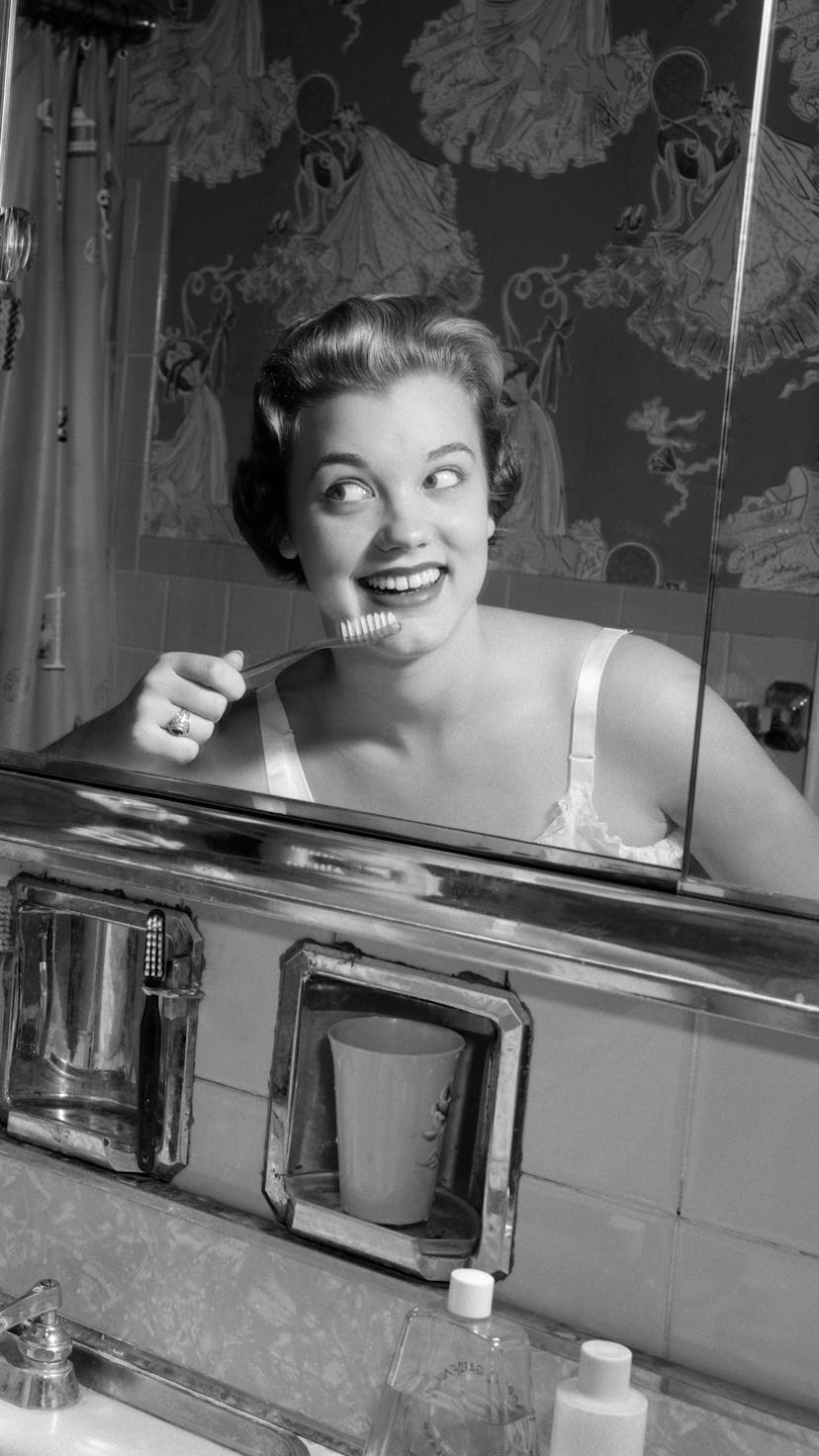Jonathan Knowles/DigitalVision/Getty Images
It’s been a long, hard pandemic, and your muscles, your brain, and your tolerance for Zoom small talk have taken a toll. You can add teeth to that list. Many people are taking their COVID-19 stress out on their chompers, a dentist wrote in the New York Times.
mikroman6/Moment/Getty Images
Dr. Tammy Chen D.D.S., the author of the Times piece, says that strain and exhaustion can show up in our mouths. As a result, the amount of tooth cracks and fractures sustained during the pandemic has skyrocketed.
Peter Cade/Photodisc/Getty Images
For one, Dr. Chen says, stress makes you grind your teeth. Bruxism, the technical term, can wear down molars and incisors over time. And in fact, your teeth shouldn't touch at all except when you're chewing or swallowing, Dr. Chen wrote.
Photographer, Basak Gurbuz Derman/Moment/Getty Images
Up to 8% of adults in America grind their teeth in their sleep, per the Sleep Foundation, and that number’s likely gone up during the COVID-19 pandemic. A 2016 study found that bruxism is related to mini-arousals, or tiny wake-ups, during sleep, which are more common when you're not sleeping well.
SrdjanPav/E+/Getty Images
Another factor is posture. If you’re working from home bending over a laptop, your nerves might ache in ways that hurt your mouth, Dr. Chen wrote.
Fabrice LEROUGE/ONOKY/Getty Images
Increased anxiety can also hurt your teeth, Dr. Chen says. The higher your anxiety, the more likely you are to experience the ‘fight or flight’ response, which tenses your muscles. Cue grinding like you're at prom again.
PinkForest/E+/Getty Images
Elsewhere on the 'net, dentists suggest other possible reasons your teeth may be silently aching. Dr. Sherwin Arman D.M.D., director of the orofacial pain program at the UCLA School Of Dentistry, told the Miami Herald that some antidepressants may increase tooth-grinding.
Underwood Archives/Archive Photos/Getty Images
SSRIs that increase serotonin levels in the brain can make you more likely to move your jaw and grind your teeth in your sleep. It’s most common with fluoxetine, sertraline, and venlafaxine, according to a 2018 review of studies.
Christine von Diepenbroek/Moment/Getty Images
If your teeth hurt, you don't have to avoid the dentist for COVID reasons. They’ll likely recommend a plastic tooth guard, which protects your teeth overnight, and some relaxation practice to soothe your muscles.
